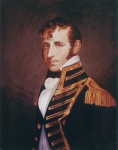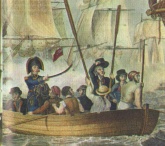
Originally Posted by
David Manley

Ah yes, of course. I find the practice quite useful. It keeps the main body of the text focussed on the subject, whilst in many cases pointing the reader who has more than a passing interest to some fascinating side stories and other references. I'm reading a history of the Foreign Legion in preparation for a gaming project next year and I've already found a dozen other references and "sideshows" worth picking up on. Same thing happened with my reading on the Sudan in the 1880s. I guess the authors in those cases could have dumped everything in the main body of the text, but I suspect an editor would have struck it out as "not relevant".






 Reply With Quote
Reply With Quote









Bookmarks